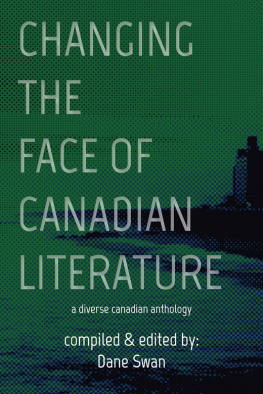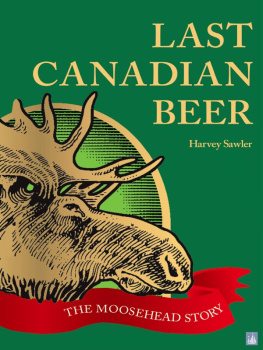S. D. Clark - Urbanism and the Changing Canadian Society
Here you can read online S. D. Clark - Urbanism and the Changing Canadian Society full text of the book (entire story) in english for free. Download pdf and epub, get meaning, cover and reviews about this ebook. year: 1961, publisher: University of Toronto Press, genre: Politics. Description of the work, (preface) as well as reviews are available. Best literature library LitArk.com created for fans of good reading and offers a wide selection of genres:
Romance novel
Science fiction
Adventure
Detective
Science
History
Home and family
Prose
Art
Politics
Computer
Non-fiction
Religion
Business
Children
Humor
Choose a favorite category and find really read worthwhile books. Enjoy immersion in the world of imagination, feel the emotions of the characters or learn something new for yourself, make an fascinating discovery.

Urbanism and the Changing Canadian Society: summary, description and annotation
We offer to read an annotation, description, summary or preface (depends on what the author of the book "Urbanism and the Changing Canadian Society" wrote himself). If you haven't found the necessary information about the book — write in the comments, we will try to find it.
In this collection of essays the changing structure of the Canadian community, especially in its urban growth, is brought before the reader with many fresh insights, much vigorous comment, and apt illustration.
Urbanism and the Changing Canadian Society — read online for free the complete book (whole text) full work
Below is the text of the book, divided by pages. System saving the place of the last page read, allows you to conveniently read the book "Urbanism and the Changing Canadian Society" online for free, without having to search again every time where you left off. Put a bookmark, and you can go to the page where you finished reading at any time.
Font size:
Interval:
Bookmark:
Urbanism and the Changing Canadian Society
Edited byS.D.CLARK
In this collection of essays the changing structure of the Canadian community, especially in its urban growth, is brought before the reader with many fresh insights, much vigorous comment, and apt illustration. The authors, concentrating on certain kinds of problems which have interested them individually, provide for student and general reader stimulating analysis of social phenomena which are under lively examination these days in Canada and beyond both in popular and semi-popular journals and magazines and in learned writings.
Nathan Keyfitz opens the volume with a valuable background analysis of the way in which the population of Canada has reached its present numbers and distribution and examines the effects of immigration and of changing rates of birth and death. S. D. Clark deals with the controversial question of what the real characteristics of the suburban community can be seen to be and comments forcefully on the suburbia of Riesman, Whyte, et al. W. E. Mann presents a fascinating analysis of the patterns of life in a slum area of Toronto which swarms with factory workers and truck-drivers, with people of many racial origins, and which has developed social habits based largely on rooming-houses, small shops, and pubs. Jean Burnet provides an historical account of changing moral standards of sobriety and piety as reflected in Sabbatarian and temperance movements in Toronto, long regarded as the quintessence of severity. Oswald Hall gives a valuable analysis of the patterns of growth in the professions and of the kinds of competitive struggles going on within them and at the borders between them as new groups strive to win this status in society. P. J. Giffen takes up an important related question of how the interests of a self-governing profession relate to the expectations of the public and uses the legal profession as his example. Finally, Leo Zakuta adds to the scanty literature on Canadian political parties an analysis of the changing character of the C.C.F., long the dominant force in left-of-centre politics.
The authors all are, or have been members of the staff in sociology at the University of Toronto, and their essays convey an excellent picture of the liveliness of the work they jointly carry forward. This volume will thus serve not only to introduce students to some of the kinds of problems sociologists are thinking about but will also make better known to them as a group some of the sociologists in Canada who are engaged with them.
In honour of
CHARLES ALLAN ASHLEY
Professor of Accounting, University of Toronto
19411945
Professor of Commerce
1945
Chairman of the Department of Political Economy
1952, 19591961
EDITED BY
S. D. Clark

Copyright, Canada, 1961, by
University of Toronto Press
Reprinted 1964 in the U.S.A.
I T IS APPROPRIATE that this volume be dedicated to Professor C. A. Ashley. It was his suggestion that led to the idea of bringing together a volume of essays written by members of the sociology staff of the University of Toronto. The essays were written and the volume prepared for publication during the period when he was chairman of the Department of Political Economy. He has been a good friend of sociology.
The volume might be thought to have several purposes but the one it serves best perhaps is the marking of the coming of age of sociology in the University of Toronto. It is now just a little more than twenty-five years since the honours course in sociology was established in this university. To anyone not familiar with the thinking in the University at the time, it might appear strange that the course was set up before there was a single person on the staff to teach sociology, and when provision for its teaching was made it was by bringing over on a part-time basis a member of the staff of anthropology. But among the founders of the course, sociology was not thought of as an independent area of study; rather it was conceived of as a distinctive grouping of a number of different areas: economics, political science, philosophy, history, psychology, anthropology, and zoology. The honours course in sociology of these first few years was a truly excellent programme of study even though it contained only the barest minimum of instruction in sociology as such.
To the late Professor E. J. Urwick belongs the credit for seeing the need in this university for an honours course in sociology, for bringing the course into being and for guiding its development in the first years after its establishment. Though Professor Urwick was never prepared to accept the claims of sociology as a science, and he would take no title for himself other than that of social philosopher, he greatly furthered its advance by bringing to bear upon his teachings about society a strong human interest in people and concern for their welfare. Sociology at Toronto owes much to him.
It owes much as well to Professor C. W. M. Hart who first taught what was called sociology in this university. If Professor Urwick had doubts about the claims of sociology as a science, those doubts were not shared by Professor Hart. Though an anthropologist by training, Hart had been brought close to the great master of sociology, Emile Durkheim, through Radcliffe-Brown, and it was a rigorously positivistic and functionally oriented sociology which he introduced to his students at Toronto. There were few of these students whose thinking was not profoundly affected by his teachings. It was he who truly pioneered instruction in sociology in this university.
It is easy to become nostalgic about those early years when I joined Hart as a member of the Toronto staff of sociology. It was something of a struggle, but then as today sociology had many good friends, not the least of whom was the late Dean H. A. Innis, and as part of the Department of Political Economy, it prospered through its close and strengthening ties with economics and political science. Sociology never suffered at Toronto, as it has in some other universities, from being isolated from its sister social science disciplines.
Whatever doubts may have persisted, however, about whether there was a separate science of sociology, the development of the past several years has very fully resolved them. Work in sociology has grown enormously not only at the University of Toronto but throughout Canada. At the time sociology was introduced at Toronto, only McGill among the Canadian universities seriously offered instruction in it. Today there is scarcely a university in Canada which does not offer a substantial programme of training in the field. The development of sociology in these other Canadian centres of learning has done much to further its development in this university.
This little volume is intended to convey some idea of what is going on in sociology at the University of Toronto. The essays do not have the nature of research reports, but they do offer some hint of the main interests and fields of work of their authors. Because they do, there can be no great unity in the volume as a whole. There is an indication of a concentration upon certain kinds of problems, largely having to do with urban growth and the changing structure of Canadian society, and it is this focus of interest which justifies the title given to the volume. But sociologists are nothing if they are not individualists, and this collection of essays gives best expression not to the sameness but to the variety of interests represented by the authors.
Next pageFont size:
Interval:
Bookmark:
Similar books «Urbanism and the Changing Canadian Society»
Look at similar books to Urbanism and the Changing Canadian Society. We have selected literature similar in name and meaning in the hope of providing readers with more options to find new, interesting, not yet read works.
Discussion, reviews of the book Urbanism and the Changing Canadian Society and just readers' own opinions. Leave your comments, write what you think about the work, its meaning or the main characters. Specify what exactly you liked and what you didn't like, and why you think so.






